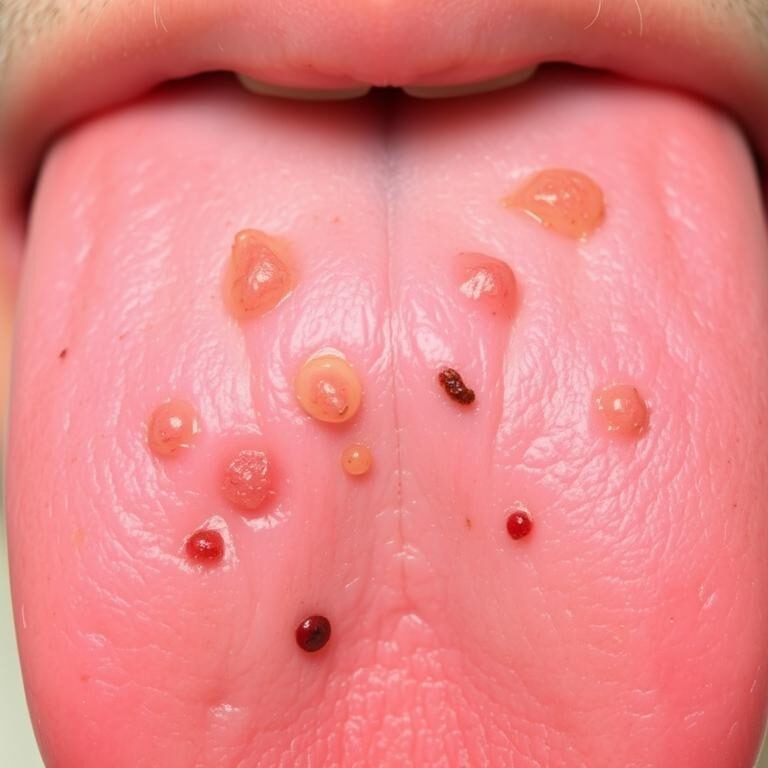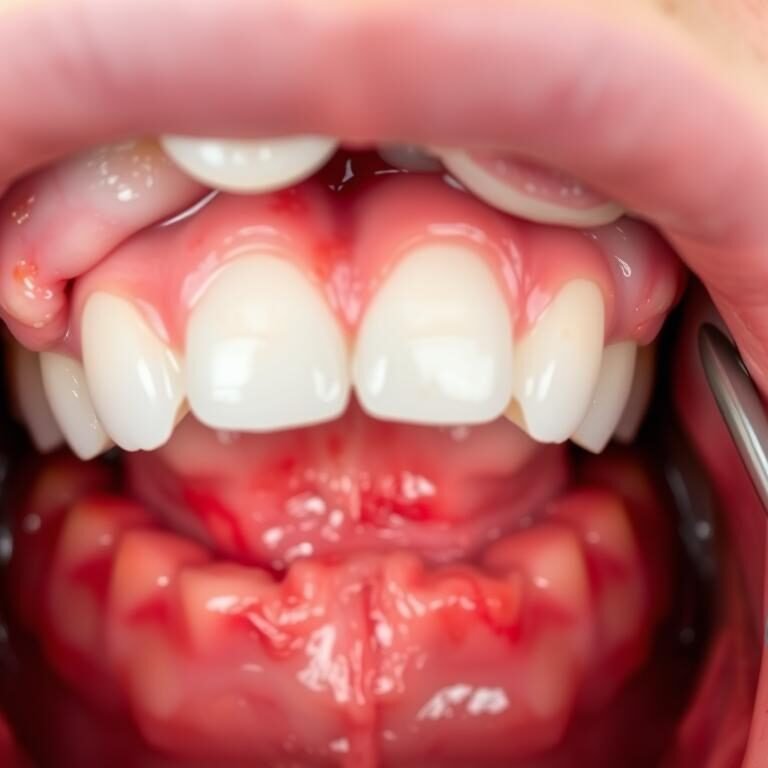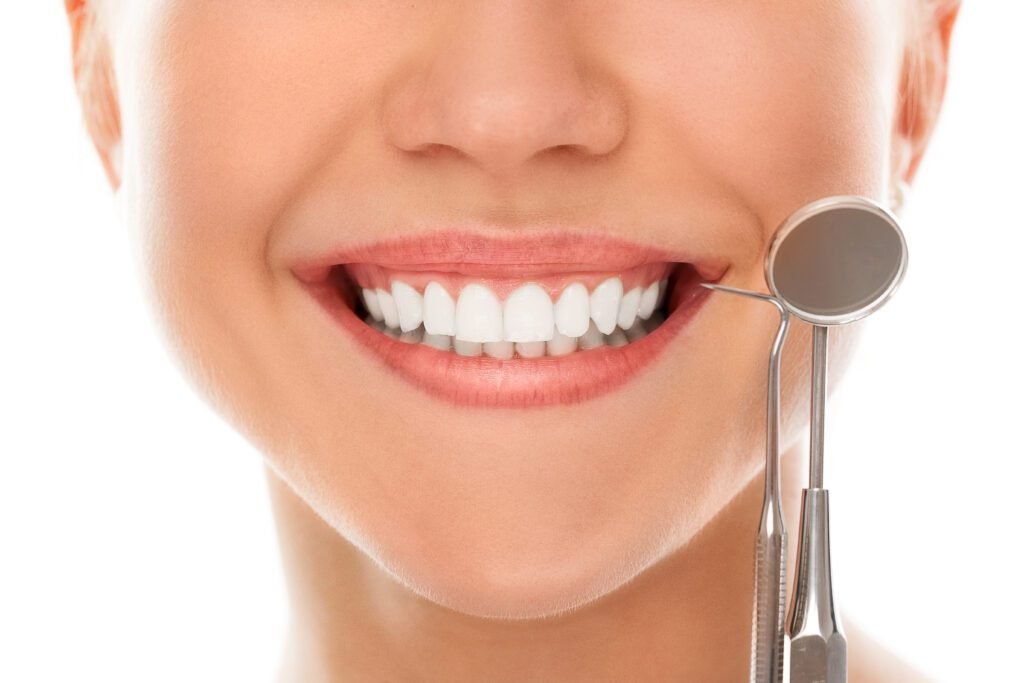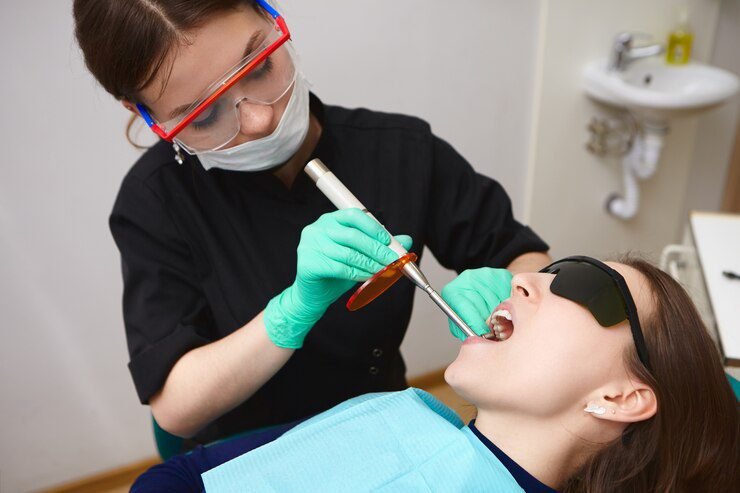Table of Contents
The Importance of Nutrients for Oral Health
Maintaining good oral health is crucial for overall well-being, and the role of nutrients in achieving this cannot be overstated. A well-balanced diet rich in essential vitamins and minerals plays a vital part in supporting healthy teeth and gums. Nutrients like calcium, phosphorus, and vitamin D are necessary for strong teeth, while vitamin C contributes to the health of gums and other soft tissues in the mouth.
Furthermore, inadequate intake of key nutrients can lead to dental issues such as tooth decay, gum disease, and even oral cancer. Therefore, paying attention to your dietary choices and ensuring you are getting the necessary nutrients can significantly impact your oral health. Consulting with a healthcare professional for personalized dietary recommendations tailored to your oral health needs is advisable for optimal results.
How Folic Acid Impacts Your Dental Health
Folic acid, a form of vitamin B9, plays a vital role in maintaining optimal dental health. It is essential for the growth and repair of tissues in the body, including the gums. A deficiency in folic acid can lead to various oral health issues, such as gum disease and poor overall oral health. Studies have shown that adequate folic acid levels can help reduce inflammation in the gums and promote healthy gum tissue. Incorporating foods rich in folic acid into your diet can contribute to better oral health outcomes.

Furthermore, folic acid has been linked to the prevention of gum disease, also known as periodontal disease. This condition can lead to gum inflammation, bleeding, and eventually tooth loss if left untreated. By ensuring adequate folic acid intake, individuals may help reduce the risk of developing gum disease and maintain a healthy smile. Additionally, folic acid has been associated with overall systemic health benefits, making it a crucial nutrient to prioritize for both dental and general well-being.
Other Essential Vitamins and Minerals for Strong Teeth and Gums
Vitamins and minerals play a crucial role in maintaining strong teeth and healthy gums. Apart from folic acid, there are other essential nutrients that contribute to optimal oral health. Calcium is one such mineral that is vital for the development and maintenance of strong teeth. It helps in building and strengthening enamel, the protective outer layer of the teeth. Calcium-rich foods such as dairy products, leafy greens, and fortified plant-based milks can aid in keeping your teeth robust and resilient.
In addition to calcium, vitamin D is another crucial nutrient for strong teeth and gums. Vitamin D helps the body absorb calcium more efficiently, ensuring that it is utilized effectively to promote dental health. Sources of vitamin D include fatty fish, egg yolks, and fortified foods. Ensuring an adequate intake of both calcium and vitamin D as part of a well-balanced diet can significantly contribute to maintaining healthy teeth and gums.
How Poor Nutrition Can Lead to Dental Issues
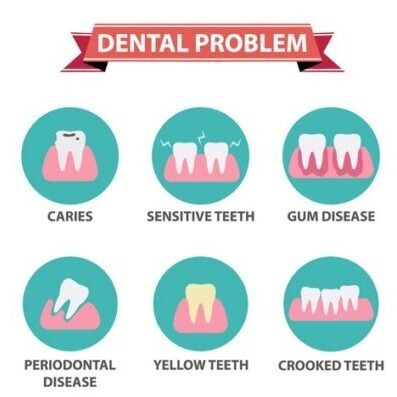
Poor nutrition can have detrimental effects on your dental health. Diets high in sugar and lacking essential nutrients can contribute to tooth decay, gum disease, and other oral health issues. The lack of proper vitamins and minerals weakens the teeth and gums, making them more susceptible to infections and decay. Inadequate intake of calcium, vitamin C, vitamin D, and other crucial nutrients can compromise the strength and structure of your teeth, leading to a higher risk of cavities and periodontal disease.
Moreover, poor nutrition can affect the body’s ability to fight off bacteria and infections in the mouth. A weak immune system, often a result of inadequate nutrient intake, can lower the body’s defenses against oral pathogens, increasing the likelihood of developing gum inflammation, infections, and other dental issues. Inadequate nutrition not only impacts your overall health but also plays a significant role in the maintenance of proper oral hygiene and the prevention of dental problems.
The Role of Folic Acid in Preventing Gum Disease
Folic acid, a B vitamin crucial for cell growth and metabolism, plays a vital role in maintaining optimal oral health, particularly in preventing gum disease. Studies have shown that folic acid helps reduce inflammation and promote tissue repair within the gums, leading to healthier oral tissues overall. This essential nutrient aids in combating the bacteria that contribute to gum disease, making it a valuable component of a well-rounded approach to oral care.
Including folic acid-rich foods in your diet, such as leafy greens, legumes, and citrus fruits, can significantly benefit your gum health. Additionally, some oral hygiene products contain folic acid to support gum health directly. By incorporating folic acid into your daily routine, you can proactively contribute to the prevention of gum disease and maintain a healthy smile for years to come.
Foods Rich in Folic Acid for Better Oral Health
Folic acid is a crucial nutrient that plays a significant role in maintaining optimal oral health. This water-soluble vitamin, also known as vitamin B9, is essential for cell growth and repair, making it vital for the health of your gums and teeth. Foods rich in folic acid can help reduce inflammation in the gums, prevent periodontal disease, and support overall oral health.
Table
| Food | Folic Acid Content | Benefit for Oral Health |
|---|---|---|
| Leafy greens | 1 cup of raw spinach provides 58.2 mcg of folate or 15% of the DV | Folate may help prevent gum inflammation and bleeding |
| Citrus fruits | 1 medium orange provides 39.3 mcg of folate, or 10% of the DV | Folate may help reduce the risk of oral cancer |
| Beans | 1 ounce of dry roasted peanuts provides 40.6 mcg of folate or 10% of the DV | Folate may help prevent tooth decay by supporting enamel formation |
| Nuts | 1 large egg provides 22 mcg of folate or 6% of the DV | Folate may help maintain healthy saliva production and pH balance |
| Eggs | 1 medium orange provides 39.3 mcg of folate or 10% of the DV | Folate may help promote wound healing and tissue regeneration in the mouth |
Leafy greens such as spinach, kale, and lettuce are excellent sources of folic acid and can be easily incorporated into your diet to promote better oral health. Other foods like asparagus, broccoli, avocado, and citrus fruits also contain high levels of this important vitamin. By including these folic acid-rich foods in your meals, you can support your oral health and contribute to a stronger, healthier smile.
How to Incorporate More Folic Acid into Your Diet
To ensure you are incorporating an adequate amount of folic acid into your diet for better oral health, focus on consuming foods that are naturally rich in this essential nutrient. Leafy greens like spinach, kale, and collard greens are excellent sources of folic acid. Additionally, incorporating more beans, lentils, and chickpeas into your meals can boost your folic acid intake. Citrus fruits such as oranges and grapefruits also contain this beneficial nutrient, making them great additions to your diet.
Another way to increase your folic acid intake is by consuming fortified foods such as cereals, bread, and pasta. Many of these products are enriched with folic acid to help individuals meet their daily requirements. By being mindful of the foods you consume and making conscious choices to include folic acid-rich options in your meals, you can support your oral health and overall well-being.
The Link Between Folic Acid Deficiency and Oral Health Problems
Folic acid, also known as vitamin B9, plays a crucial role in maintaining optimal oral health. A deficiency in folic acid can lead to a range of oral health problems, including periodontal disease, gingivitis, and even oral cancer. Research has shown that folic acid deficiency can weaken the immune system, making individuals more susceptible to bacterial infections in the mouth. These infections can then progress to more serious oral health issues if left untreated.
Furthermore, folic acid is essential for cell growth and repair, which is vital for the regeneration of oral tissues and the maintenance of healthy gums. Therefore, ensuring an adequate intake of folic acid through dietary sources or supplements is paramount for preventing oral health problems and promoting overall oral well-being. By incorporating folic acid-rich foods into your diet and maintaining good oral hygiene practices, you can help safeguard against the negative consequences of folic acid deficiency on your oral health.
Table
| Oral Health Problem | Cause | Prevention |
|---|---|---|
| Neural tube defects (NTDs) and orofacial clefts (OFCs) | Abnormal folate metabolism and cytokine production during fetal development | Taking folic acid supplements before and during pregnancy |
| Periodontal disease | Oxidative stress, endothelial dysfunction, and genomic instability induced by folate deficiency | Eating a diet rich in folate and folic acid, maintaining good oral hygiene, and visiting the dentist regularly |
| Oral cancer | Folate deficiency may impair DNA repair and increase the risk of mutations | Eating a diet rich in folate and folic acid, avoiding tobacco and alcohol, and screening for oral cancer |
| Anemia and related oral symptoms | Folate deficiency may reduce the production of red blood cells and cause megaloblastic anemia | Eating a diet rich in folate and folic acid, taking folic acid supplements if needed, and treating the underlying cause of anemia |
The Benefits of a Well-Balanced Diet for Your Teeth and Gums
A well-balanced diet plays a crucial role in maintaining optimal oral health. The nutrients we consume directly impact the health of our teeth and gums. Essential vitamins and minerals such as calcium, vitamin D, and phosphorus are vital for strengthening teeth and supporting overall oral health. Including a variety of nutrient-rich foods in your daily diet can help prevent common dental issues like cavities and gum disease. Moreover, a diet that supports oral health can also contribute to improved overall health and well-being, showcasing the interconnectedness of our dietary choices with our oral health status.
Furthermore, a diet rich in fruits, vegetables, whole grains, lean proteins, and dairy products can provide the necessary nutrients to promote strong teeth and gums. These foods not only support dental health but also aid in maintaining a healthy weight and reducing the risk of systemic diseases. By prioritizing a well-balanced diet, individuals can proactively address their oral health needs and minimize the likelihood of developing dental problems in the future. Emphasizing the importance of nutrition in dental care highlights the role of dietary choices in fostering a healthy and resilient smile.
Tips for Maintaining Good Oral Health Through Nutrition
Maintaining good oral health through proper nutrition is essential for overall well-being. A balanced diet rich in essential nutrients like vitamins C, D, and calcium can help keep your teeth and gums strong and healthy. Foods high in antioxidants, such as fruits and vegetables, can also support gum health by reducing inflammation and combating bacteria that cause oral diseases. By incorporating nutrient-dense foods into your daily meals, you can promote oral health and prevent common dental issues.
In addition to vitamins and minerals, staying hydrated is crucial for maintaining good oral health. Water helps wash away food particles and bacteria that can lead to tooth decay and gum disease. Limiting sugary and acidic beverages can also protect your teeth from erosion and cavities. Remember, a well-rounded diet and proper hydration are key components of a healthy oral care routine.
The Connection Between Folic Acid and Oral Cancer Prevention
Folic acid, a B vitamin known for its role in preventing birth defects and supporting overall health, has also been linked to oral cancer prevention. Research suggests that a deficiency in folic acid may increase the risk of developing oral cancer, particularly in the tongue, gums, and throat. Folic acid plays a crucial role in DNA synthesis and repair, which is essential for maintaining the integrity of cells and preventing cancerous mutations in the oral cavity.
Studies have shown that individuals with lower levels of folic acid in their bodies are more likely to develop oral cancer compared to those with adequate levels of this important nutrient. By including folic acid-rich foods in your diet, such as leafy greens, citrus fruits, whole grains, and legumes, you can help support your body’s natural defense mechanisms against oral cancer. Consult with your healthcare professional to determine if folic acid supplementation may be beneficial for reducing your risk of oral cancer and promoting overall oral health.
How Nutrient-Rich Foods Can Help Prevent Cavities
A diet rich in essential nutrients plays a crucial role in preventing cavities and maintaining optimal oral health. Nutrient-rich foods provide the necessary vitamins and minerals that support strong teeth and gums, ultimately reducing the risk of tooth decay. Incorporating a variety of nutrient-dense options such as fruits, vegetables, dairy products, and lean proteins into your daily meals can significantly contribute to cavity prevention.
Certain nutrients like calcium, phosphorus, and vitamin D are particularly important for promoting healthy enamel and preventing cavities. Calcium, found in dairy products like milk and cheese, helps strengthen teeth, while phosphorus works in conjunction to rebuild and protect tooth enamel. Vitamin D aids in calcium absorption, further enhancing dental health. By prioritizing a balanced diet filled with nutrient-rich foods, individuals can proactively combat cavity formation and support overall oral well-being.
The Impact of Folic Acid on Overall Oral Health

Folic acid plays a crucial role in maintaining optimal oral health. Research has shown that this B vitamin is essential for preventing gum disease, reducing inflammation in the mouth, and promoting healthy cell growth. Adequate folic acid levels can contribute to stronger teeth and gums, ultimately leading to better overall oral health outcomes.
Furthermore, folic acid has been linked to a reduced risk of oral cancer. Studies suggest that individuals with lower levels of folic acid in their bodies may be more susceptible to developing oral cancers, highlighting the importance of including this nutrient in your diet for long-term oral health benefits. By incorporating folic acid-rich foods into your meals and ensuring adequate intake, you can support the health of your teeth and gums, potentially reducing the risk of oral health issues in the future.
Nutritional Strategies for Improving Your Dental Hygiene
To improve your dental hygiene, incorporating proper nutrition is essential. Consuming a well-balanced diet rich in essential vitamins and minerals can significantly impact the health of your teeth and gums. Folic acid, in particular, plays a crucial role in maintaining oral health by promoting healthy gum tissues and preventing gum disease. Foods such as leafy greens, citrus fruits, beans, and fortified grains are excellent sources of folic acid that can contribute to better oral health outcomes.
In addition to folic acid, other nutrients like calcium, vitamin C, and vitamin D are also vital for strong teeth and gums. Calcium helps strengthen tooth enamel, vitamin C promotes healthy gum tissue, and vitamin D aids in the absorption of calcium for optimal dental health. By making conscious dietary choices and ensuring adequate intake of these essential nutrients, you can support your oral hygiene efforts and reduce the risk of dental issues in the long run.
The Importance of Consulting with a Healthcare Professional for Dietary Recommendations
When it comes to optimizing your dietary choices for the betterment of your oral health, seeking guidance from a healthcare professional is paramount. A healthcare professional, particularly a dentist or nutritionist, can offer personalized recommendations based on your individual health needs and goals. They possess the expertise to assess your current dietary habits, identify areas for improvement, and tailor a nutrition plan that supports your oral health objectives. By consulting with a healthcare professional, you can gain valuable insights into how specific nutrients, vitamins, and minerals contribute to the health of your teeth and gums, ensuring that your dietary choices align with your overall dental wellness goals.
Furthermore, a healthcare professional can provide evidence-based guidance on the optimal intake of essential nutrients for strong teeth and gums, such as folic acid and other key vitamins and minerals. They can offer practical strategies for incorporating nutrient-rich foods into your diet, helping you make informed choices that benefit your oral health in the long run. By collaborating with a healthcare professional, you can proactively address any nutritional deficiencies that may impact your teeth and gums, promoting a holistic approach to maintaining excellent oral health through well-rounded dietary practices.
Why is it important to consult with a healthcare professional for dietary recommendations?
Consulting with a healthcare professional for dietary recommendations is crucial because they can provide personalized advice based on your individual health needs and goals. They can help you identify any nutritional deficiencies that may be impacting your oral health and recommend specific foods or supplements to address them.
How can a healthcare professional help improve my oral health through nutrition?
A healthcare professional can assess your current diet and provide guidance on how to make healthier food choices that promote strong teeth and gums. They can also recommend specific nutrients, such as folic acid, that are essential for maintaining good oral health.
What role does folic acid play in preventing gum disease?
Folic acid has been shown to help prevent gum disease by reducing inflammation and promoting healthy gum tissue. Including foods rich in folic acid in your diet can help support your overall oral health.
What are some foods that are rich in folic acid for better oral health?
Foods that are rich in folic acid include leafy green vegetables, legumes, citrus fruits, and fortified cereals. Including these foods in your diet can help ensure you are getting an adequate amount of folic acid to support your oral health.
How can I incorporate more folic acid into my diet?
You can incorporate more folic acid into your diet by including foods such as spinach, broccoli, lentils, and oranges in your meals. You can also consider taking a folic acid supplement if recommended by your healthcare professional.
What are the benefits of a well-balanced diet for your teeth and gums?
A well-balanced diet that is rich in essential nutrients can help support strong teeth and gums, reduce the risk of dental issues such as cavities and gum disease, and promote overall oral health. Consulting with a healthcare professional can help you develop a nutrition plan that is tailored to your specific needs.
How can nutrient-rich foods help prevent cavities?
Nutrient-rich foods, such as fruits, vegetables, and whole grains, can help prevent cavities by promoting healthy teeth and gums. These foods provide essential vitamins and minerals that support oral health and can help reduce the risk of tooth decay.
What are some nutritional strategies for improving dental hygiene?
Some nutritional strategies for improving dental hygiene include avoiding sugary and acidic foods, drinking plenty of water, and including foods that are rich in calcium, vitamin D, and folic acid in your diet. Consulting with a healthcare professional can help you develop a nutrition plan that promotes good oral health.
Remember to consult with a healthcare professional before making any significant changes to your diet or lifestyle for personalized recommendations and advice.






